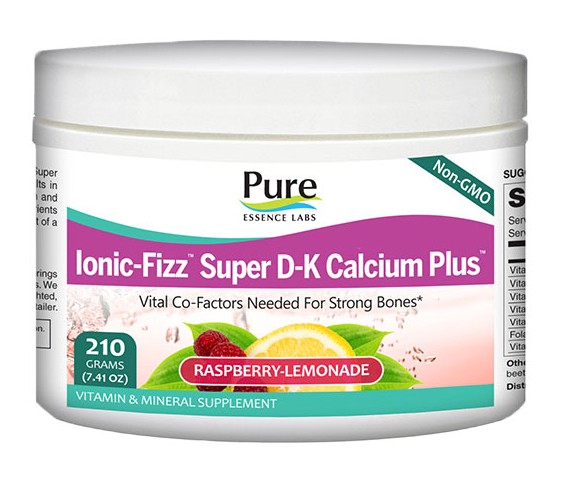
Omega 3s for Heart and Joint Health
Over the past 2 decades, there has been a dramatic increase in the scientific study and public interest in omega-3 fatty acids and the positive impact they may have on our health. These special omega-3 fatty acids have been shown to support a healthy inflammation response and promote heart, circulation, and joint health.
They can also help support a healthy cardiovascular system by thinning the blood, dilating blood vessels, and supporting healthy blood pressure.
Essential Fatty Acid Basics
Omega 3 fatty acids are considered “essential” because they cannot be manufactured within the body. Therefore, they must be obtained from food sources, such as fish, plant, and nut oils. We need them for our bodies to work normally. Because essential fatty acids (ALA, DHA, EPA) are not made in the body or are inefficiently converted from ALA to EPA and DHA, we need to get them from food.
Symptoms of Omega 3 Fatty Acid Deficiency
- Extreme tiredness
- Poor memory
- Dry skin
- Heart problems
- Mood swings
- Depression
- Poor circulation
Benefits of Omega 3 Fatty Acids
Omega-3s have a number of reported health benefits. Supplementing with omega 3s for heart and joint health may lead to many health benefits. They can help support a healthy inflammation response in blood vessels, joints, and elsewhere.* Omega-3 supplements (EPA/DHA) may also thin blood and aid cell function.*
Types of Omega 3 Fatty Acids
There are several types of omega-3 fatty acids. The two most crucial ones, EPA and DHA, are primarily found in certain fish. Plants like flax contain ALA, an omega-3 fatty acid that is partially converted into EPA and DHA in the body. Experts say that EPA and DHA that comes from fish and fish oil have better established health benefits than ALA.
EPA and DHA are found together only in fatty fish and algae. Flaxseed and omega 3s plant sources provide only ALA, a precursor to EPA and DHA, and a source of energy. EPA and DHA are the building blocks for hormones that control immune function, blood clotting, and cell growth. Extensive research has shown that omega 3 fatty acids may help reduce risk factors associated with joint and heart health.
Read about balancing Omega 3 and Omega 6 fatty acids HERE.
Omega 3’s and Cardiovascular Health
Significant scientific research suggests that the omega 3 fatty acids found in fish may help decrease the risk of coronary heart disease.
Nurses’ Health Study – This study began in 1976. More than 80,000 female nurses completed life style and diet questionnaires. Then, they were monitored for 16 years for the development of coronary heart disease. Omega-3 fatty acid consumption was calculated from the questionnaires. The results of the study showed that compared to women who rarely ate fish (less than one fish meal per month), women who ate fish once a week had a 29% lower risk of developing coronary heart disease. Those who ate fish five times a week had a 34% reduction in the risk of coronary heart disease and a 45% reduction in the risk of death from heart disease (usually sudden cardiac death).1
Physicians Health Study – The Physician’s health study began in 1982 when more than 20,000 healthy male physicians were followed for 11 years. Life style, coronary risk factors and diet data were collected at entry, and life style and diet data were collected via questionnaires at 12 months and 18 months. The results of the study showed that men who consumed one or more fish meals per week had a 50% lower risk of developing sudden cardiac death than men who rarely ate fish (less than one fish meal per month).2
According to WebMD, “Omega-3 fatty acids appear to lower the overall risk of death from heart disease. Fish oil may reduce arrhythmias, and people who take omega-3 supplements after a heart attack cut their risk of having another heart attack. Eating fish once or twice a week seems to significantly lower the risk of stroke.”
Omega 3’s and Joint Health
Omega 3’s may help encourage a healthy inflammation response and support joint health as well. Clinical studies that have investigated the use of omega-3 fatty acid supplements for joint health and inflammation response have concluded that omega-3 fatty acid supplements help reduce tenderness in joints, decrease morning stiffness, and more.*
Additionally, laboratory studies suggest that diets rich in omega-3 fatty acids may benefit people with more significant need for joint health and inflammation support.3,4
The Physician’s Desk Reference for Nutritional Supplements suggests that a “daily ingestion of at least 3 grams of EPA and DHA mixtures of a period of 12 weeks or longer has been found to reduce the number of tender joints and amount of morning stiffness…”*
References and Resources
- JAMA vol 287. No.14, p 1815. “Fish and omega-3-fatty acid intake and risk of coronary heart disease in women”.
- JAMA 1998, vol 279, p23. The title of the article is “Fish consumption and risk of sudden cardiac death”.
- MacLean CH, Mojica WA, Morton SC, et al. Effects of omega-3 fatty acids on lipids and glycemic control in type II diabetes and the metabolic syndrome and on inflammatory bowel disease, rheumatoid arthritis, renal disease, systemic lupus erythematosus, and osteoporosis. Evid Rep Technol Assess (Summ). 2004(89):1-4.
- Goldberg RJ, Katz J. A meta-analysis of the analgesic effects of omega-3 polyunsaturated fatty acid supplementation for inflammatory joint pain. Pain. 2007;129(1-2):210-223.
Diet, atherosclerosis, and fish oil.
N-3 fatty acids from fish oil. Effects on plasma lipoproteins and hypertriglyceridemic patients.
Omega-3 fatty acids in rheumatoid arthritis: an overview.
Essential Fatty Acids, Oregon State University Overview
Validation of a meta-analysis: the effects of fish oil in rheumatoid arthritis.




